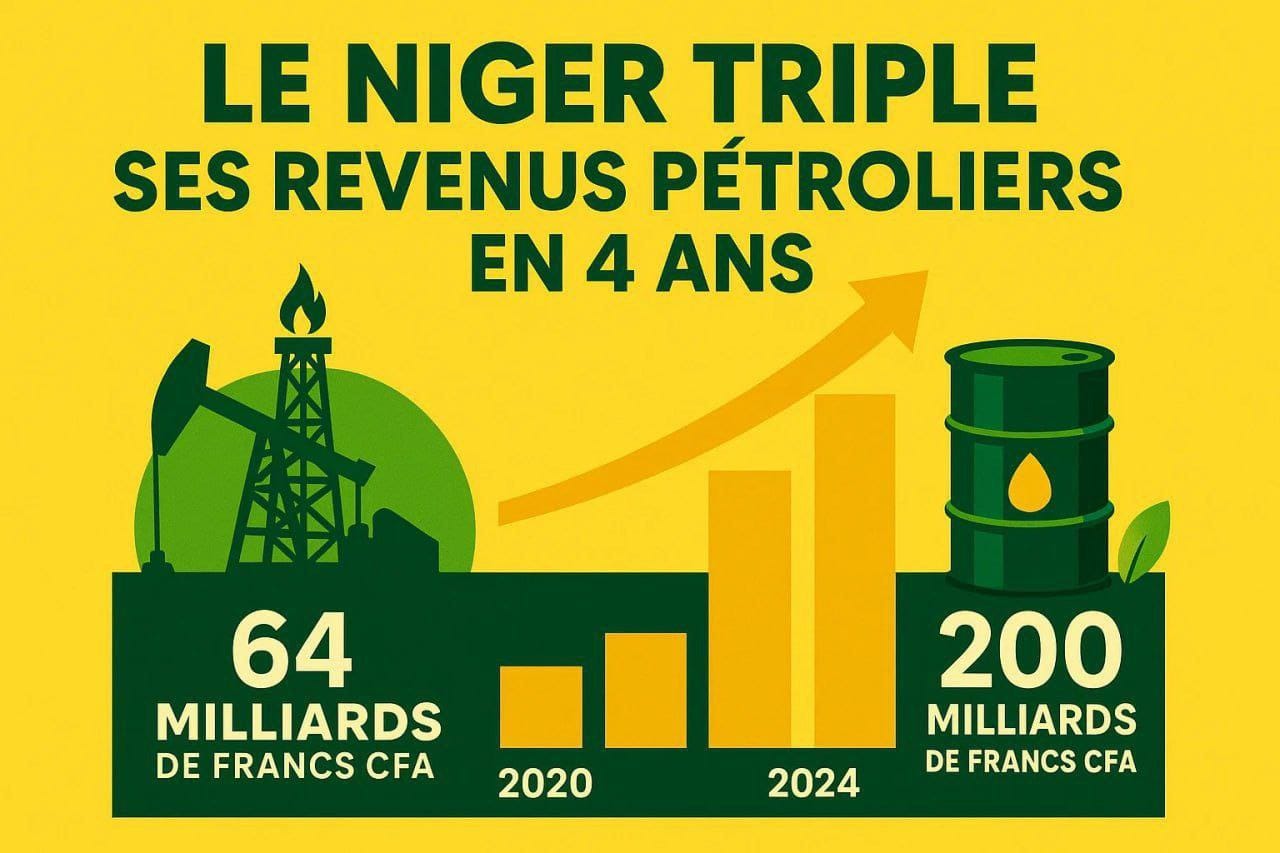
Niger Triples Oil Revenue in Four Years, After Cutting Ties with France

Niger has achieved a significant economic milestone as the Ministry of Petroleum announced that oil revenues have tripled over the past four years, with production reaching 20.3 million barrels in 2024, a national record.
This increase comes as the country embarked on a new path of economic self-determination, following a move to distance itself from its longstanding French influence. The shift appears to be paying off.
The government’s strategy to boost oil production and revenue has been built around three key pillars. First, Niger intensified operations in the Bilma, R5, R6, and R7 blocks, which are managed by the Nigerien Petroleum Company (SONIDEP). These increased exploration and production efforts significantly expanded output.
Second, the Zinder refinery (SORAZ) saw major investments in local workforce development. By training and empowering Nigerien engineers and technicians, the government reduced dependence on foreign expertise.
Third, Niger strategically diversified its international partnerships, notably with Asian and Middle Eastern stakeholders, resulting in more favourable contracts and greater control over its resources.
This oil boom is not just about numbers; it symbolises a shift away from the colonial-era economic model that long kept Niger reliant on foreign companies, particularly French interests.
With oil production and revenue soaring, the next challenge will be ensuring that the windfall truly benefits the broader population. The government has indicated that oil revenue will be reinvested in public infrastructure, education, and health, aiming to transform the nation’s long-neglected sectors.
As Niger continues to redefine its place in the global economy, this oil success story could become a powerful example for other resource-rich African nations seeking greater autonomy, transparency, and equity in managing their natural wealth.
Read: New Streaming Platform ‘Kava’ by Inkblot Studios & Filmhouse Set to Focus on African Stories
About The Author
%s Comment
Leave a Reply Cancel reply
Related Articles
AES Condemns Niamey Airport Attack, Warns of Coordinated Destabilisation
The Alliance of Sahel States has strongly condemned the armed attack on...
ByWest Africa WeeklyFebruary 2, 2026Mali Cedes Strategic Land to Guinea to Deepen Trade Cooperation
Mali has approved the transfer of a strategic parcel of land to...
ByWest Africa WeeklyFebruary 2, 2026Senegal to Appeal CAF Sanctions After AFCON Final Controversy
Senegal has announced plans to formally appeal the sanctions imposed by the...
ByWest Africa WeeklyFebruary 2, 2026Burkina Faso Takes Legal Step Toward Nuclear Energy Development
Burkina Faso has voted to join the Vienna Convention on Civil Liability...
ByWest Africa WeeklyFebruary 2, 2026












Informative and clear to read and understand.